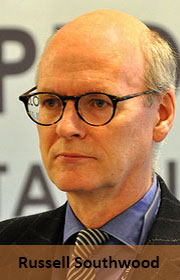 One day, everything will be data. Voice will not exist as a separate service needing different technology. The transition in developed countries has been relatively slow. However, at the international level, large amounts of calls now move through Internet protocol and multiprotocol label switching-based networks.
One day, everything will be data. Voice will not exist as a separate service needing different technology. The transition in developed countries has been relatively slow. However, at the international level, large amounts of calls now move through Internet protocol and multiprotocol label switching-based networks.
Every year, consumer software such as Skype and Viber are used by more of people. Growing numbers use Facebook and WhatsApp to convey the kinds of messages they used to send over SMS.
The transition has been slow. The industry is still protecting its old business model, while being sucked in by new forces they can’t resist. They don’t want to become “dumb pipes”, but everything points to the next big stage being about large, dumb-pipe providers.
Africa’s progress in this transition has been poor. The mobile companies know that they have to make a transition to data revenues but, with a few notable exceptions, haven’t really embraced the change.
They see the Internet and data as a capital-intensive business for which they don’t really have the networks. The returns on data are not anything like those for voice and this troubles those who lived through the “gold rush” of the past decade.
Data is all about content, and Africa’s users have already voted in large numbers for things like Facebook, not for content from the mobile operators. Deals offered to content producers is still skewed so heavily in favour of the operators that it is impeding development of a local content ecosystem.
Why should any of this matter to governments and regulators? Because although mobile voice and SMS was the first wave of the communications revolution, these cannot be used to deliver lengthier or more complicated communications. You need Internet-enabled devices to be able to make companies more efficient and public sector services such as health and education more effective.
The number of Internet users in Africa has grown enormously in the past decade. There is now a “critical mass” of users in countries with more competitive telecommunications markets, but in the smaller, less wealthy countries, access is still an expensive privilege. For too many governments and regulators, the Internet is still seen as playing second fiddle to voice.
There needs to be a focus on three things: getting Internet costs down for end users; increasing the reliability of the Internet; and pushing out access to a much wider number of people.
These objectives need to inform the roll-out of more fibre networks and the next generation of mobile Internet, 4G/LTE. It is no longer good enough to talk about 256kbit/s as broadband as video will be what users want as next-generation services arrive.
I’ve attempted to draw up a list of some of the things governments can do to accelerate the pace of change.
Accelerate competition at all levels. Even in the more competitive countries, mobile operators with large fibre wholesale networks are hanging on to “rent-seeking’ wholesale pricing models. In less competitive countries, the discussion about this kind of market blockage has barely started; state monopolies in places like Angola, Cameroon and Togo still rule with high prices and poor quality.
Regulators need to open up competition to utilities that have fibre assets and allow them to make their capacity available competitively. They need to encourage carriers’ carriers to roll out and offer competitive wholesale fibre networks from the private sector.
At the local level, they need to ensure that there is fair and open access for those wanting to roll out local access networks so that they can use wholesale capacity to deliver competitive prices. Insurgent challengers offering household fibre to the home and LTE should be actively encouraged through the licensing process.
These new data licences should not just focus on delivering Internet, but allow this new breed of operators to get access to some part of the voice markets. Mobile virtual network operators that offer voice services over data should be encouraged. Mobile operators will be shrill in opposition, but the response should be: why are you not already doing this?
Where a lack of revenues makes competition hard (such as in rural areas), network consortia should be considered. Where the smaller mobile operators are finding it hard to compete with a dominant mobile operator, they should be encouraged to form wholesale consortia.
Bring prices down and get usage up. The focus needs to be on getting Internet access costs for end users down. The targets adopted by the Alliance for Affordable Internet are a useful starting point. The rapid growth of African Internet users in the past five years has been in large part because prices have come down.
Information is a powerful tool in this battle. Only a handful of regulators publish Internet subscriber numbers and rates charged by operators. Regulators need not only to collect Internet user numbers from operators, but to publish them, too. They also need to publish quarterly Internet access cost data, with comparisons, to help consumers choose the best deals.
Regulators need to make annual Internet access cost price comparisons and get operators to agree to bring prices down to more affordable levels. How? The new incumbents are the mobile operators and they have become accustomed to a certain lifestyle. To produce cheaper Internet services, they either have to cut costs or the regulator can license others who can achieve this (see above).
Spread Internet coverage. In the best of African countries, the Internet has reached critical mass in urban areas, but it is barely available in rural areas. There has been a lot of rhetoric about spreading services to rural areas (including voice) but the sad truth is that relatively little has happened relative to the scale of the task.
Mobile operators have more or less reached the edge of what they consider are addressable markets and, on this basis, they should not be allowed to stand in the way of progress. The attitude from regulators needs to be: either get in there and develop services or stand out of the way and let others get on with task. They need to be made to offer fair and transparent interconnection rates for those who tackle geographic areas they won’t move into.

Technical innovation needs to be a cornerstone to work of this kind. The newer generation of low-cost base stations and television “white spaces” spectrum pilots offer interesting ways to reduce delivery costs. For example, the Kenyan regulator, CCK, should offer a proper licence to the company delivering its TV white spaces pilot rather than just granting permission. White spaces – the gaps in gaps in spectrum between television broadcasts – are crucial. The companies in areas the mobile operators think are not addressable should be allowed to offer IP voice and data services.
Get the cost of spectrum down. Regulators tend to see spectrum sales as a revenue-raising activity. But companies will pass these costs onto customers.
New LTE spectrum must not be sold in such a way that it condemns use of these new services only to high-end business users in the cities and at the airports. Licence conditions can be used that place a premium on wider roll-out and lower prices. Achieve those targets, and cut their spectrum prices.
For rural areas, LTE is significantly more efficient for delivering spectrum over long distances and regulators could reserve certain geographic areas where they would offer those willing to invest free LTE spectrum beyond a nominal administrative charge.
Quality, quality, quality. An impressive group of regulators have been prepared to take on mobile operators over voice quality. The issue gets messy in places because government has failed to deliver adequate electricity supply, which needs to be dealt with separately (see below).
Regulators should start to carry out quality-of-service tests on data services and be prepared to issue fines against those failing to meet agreed standards. They should listen to the industry and get to grips with network blockages that are slowing service delivery.
Vandalism remains a huge problem, of course, by both employees of the companies and thieves looking for copper. Regulators need to carry out education campaigns about how fibre is worthless and get operators to replace of much of it as quickly as possible. Governments need to pass laws that place draconian penalties on those who cut cables used in telecoms networks.
On the question of electricity supply, mobile operators and regulators need to lobby their governments. Diesel is expensive and polluting. New power distribution licences should be issued to improve electricity supply.
Africa cannot afford to wait for the future to arrive at its doorstep. The World Bank is fond of pointing to the relationship between an increase in broadband penetration and an increase in GDP. This may well be true, but what is required to get this increase in broadband penetration is decisive action by governments and regulators to allow investors to get on with the job. Africa now needs lean companies that can deliver Internet access at prices lots of people can afford.
- Russell Southwood is head of Balancing Act Africa




